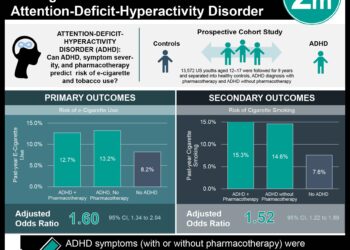Smoking may not affect short-term outcomes in cranial surgery
Image: PD
1. Current or prior history of smoking was not linked to worse 30-day operative morbidity and mortality.
2. Postponement of elective cranial cases for smoking cessation may be unnecessary.
Evidence Rating Level: 2 (Good)
Study Rundown: Smoking has been identified as an independent risk factor for poor perioperative outcomes in a number of surgical procedures include spinal surgeries. The authors utilized the large, prospective NSQIP database to examine whether this relationship holds true for elective cranial surgery. In a matched analysis, there was no association identified between smoking and adverse outcomes. Similarly, in a propensity-matched analysis, number of pack years did not predict worse outcomes in prior or current smokers. Thus, the authors concluded that a history of prior or current smoking should not be of concern to neurosurgeons or patients when considering elective cranial surgery. This study is limited by its retrospective analysis: no causal relationship could be correctly identified by this study between smoking and morbidity/mortality. Potential long term outcomes beyond 30-days post-operatively were also not captured by this analysis.
Click to read the study in JNS
Relevant Reading: Cigarette smoking: a risk factor for postoperative morbidity and 1-year mortality following craniotomy for tumor resection
In-Depth [retrospective cohort]: This study utilized the large, prospective National Surgical Quality Improvement Project database to identify over 8000 patients who underwent elective cranial surgery including 1700 current smokers and 850 prior smokers. Length of stay (LOS), post-operative complications, return to OR, and 30-day mortality were no different between current, prior, and never smokers. Authors then matched current and prior smokers to never smokers utilizing age and propensity-matched scores from other covariates in the study and found no difference in LOS, post-operative complications, 30-day return to OR, and 30-day mortality between smokers and never smokers. Looking at number of pack-years, current and prior smokers experienced similar outcomes versus non-smokers regardless of number of pack-years. Only patients with >60 pack-years had more prolonged LOS and major complications than non-smokers.
©2012-2014 2minutemedicine.com. All rights reserved. No works may be reproduced without expressed written consent from 2minutemedicine.com. Disclaimer: We present factual information directly from peer reviewed medical journals. No post should be construed as medical advice and is not intended as such by the authors, editors, staff or by 2minutemedicine.com. PLEASE SEE A HEALTHCARE PROVIDER IN YOUR AREA IF YOU SEEK MEDICAL ADVICE OF ANY SORT.





![Addition of bevacizumab fails to benefit overall survival in newly diagnosed glioblastoma [RTOG 0825 trial]](https://www.2minutemedicine.com/wp-content/uploads/2014/02/AFIP-00405558-Glioblastoma-Radiology-e1381685577283-75x75.jpg)
